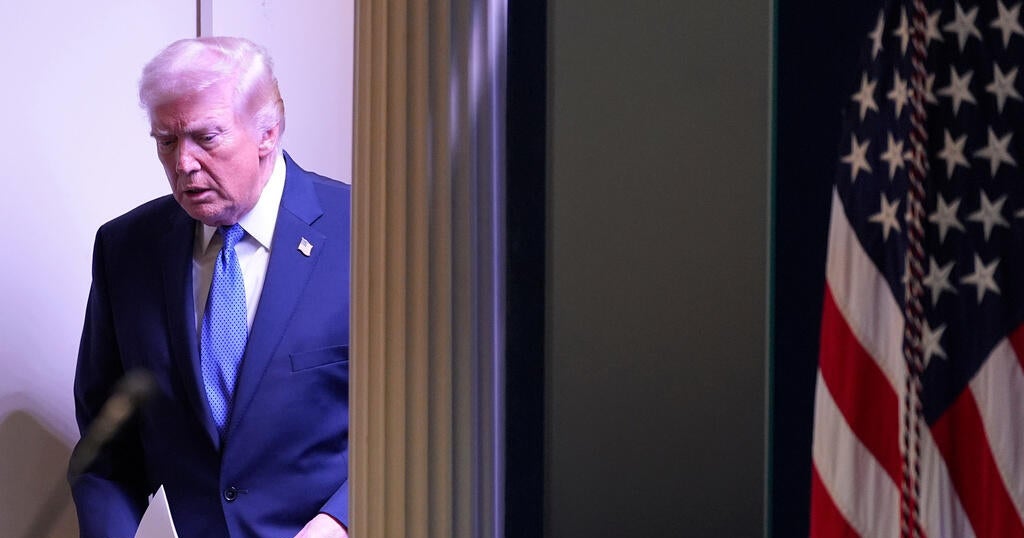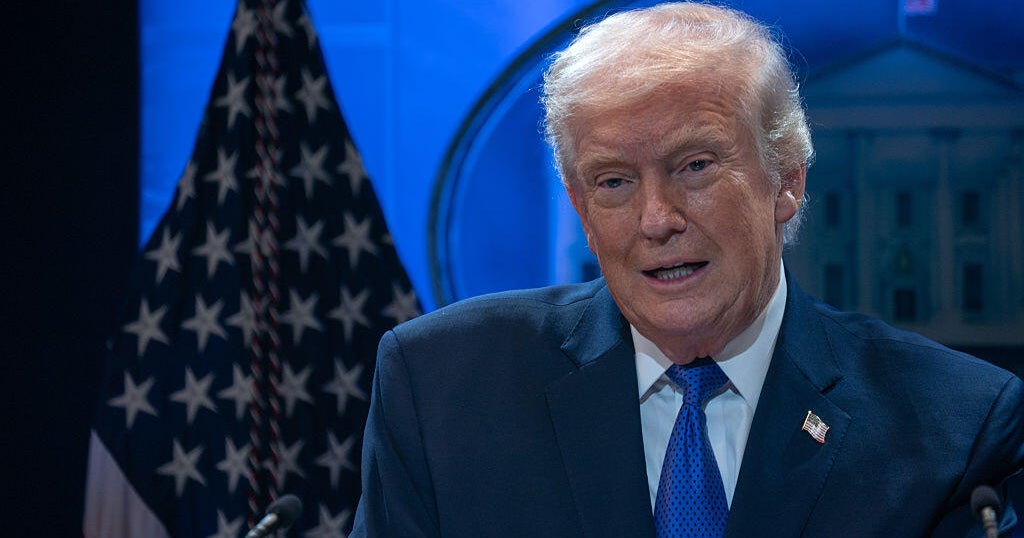Trump says he believes strike by Iran was not intentional
President Trump told reporters that he doesn't believe that Iran intentionally shot down an American spy drone Thursday, an act he also referred to as "a very big mistake." U.S. officials say Iran shot down the drone over international waters over the Strait of Hormuz Thursday, while Iran claims it shot down a U.S. drone flying in its airspace.
When asked by reporters what his response to Iran would be, Mr. Trump replied, "You'll soon find out."
In a meeting with Canadian Prime Minister Justin Trudeau at the White House, Mr. Trump told reporters he believed the strike on the American drone may have been a mistake.
"I find it hard to believe it was intentional," Mr. Trump said, adding that it was perhaps a general or someone "under command" of the Iranian government who mistakenly authorized the strike. "It could've been somebody who was loose and stupid," he continued.
Mr. Trump did say that he would react differently if it was an American pilot who had been shot down.
Tensions between the U.S. and Iran have escalated since Mr. Trump announced the U.S. was withdrawing from the Iran nuclear agreement last year. The U.S. is blaming Iran for attacking two oil tankers targeted in the Strait of Hormuz last week, but Iran has denied any involvement. Former acting Defense Secretary Patrick Shanahan announced Monday the U.S. would be sending 1,000 troops to the Middle East in response to increased Iranian aggression.
House Speaker Nancy Pelosi warned of the danger of miscalculation Thursday, asserting that the U.S. has to be "strong and strategic in how we protect our interests."
"I don't think the president wants to go to war. There's no appetite to go to war in this country," Pelosi said during her weekly press conference Thursday. A group of congressional leaders was briefed on the situation in Iran on Thursday morning.
Several members of Congress also gathered at the White House in a meeting with Mr. Trump Thursday afternoon. Senate Minority Leader Chuck Schumer said that the Democratic members urged the president not to make any decisions without congressional approval.
"Now I told the president that these conflicts have a way of escalating. The president may not intend to go to war here but we're worried that he and the administration may bumble into a war. We told the room that the Democratic position is that congressional approval must be required before funding any conflict with Iran," Schumer said.
Trump ally and GOP Sen. Lindsey Graham, of South Carolina, told reporters Thursday morning that he had spoken with the president that morning and said that Mr. Trump believes "his options are running out."
"He believes that we're getting into a bad space, that his options are running out," Graham said. "He's not going to relieve sanctions because the Iranians are worse than they've been."
Graham told reporters later on Thursday that Iran should get ready for "severe pain" if it continued to act aggressively.
"Here's what Iran needs to get ready for severe pain, inside their country," Graham said. "If they're itching for a fight, they are going to get one."
Democratic Sen. Dianne Feinstein urged caution, however, and said that the administration should speak with Iranian Foreign Minister Javad Zarif. She wrote a letter to Secretary of State Mike Pompeo urging him to set up a meeting with Zarif.
"I think our government ought to take him up on it," Feinstein said. "I've known this foreign Minister for 20 years and it would be unfortunate if those conversations don't take place."
Former acting CIA Director Michael Morell told "CBS This Morning" Tuesday that while sending additional troops to Iran was a show of strength by the U.S., there's a risk of miscalculation by either of the two parties, which could lead to conflict. If Iran were to attack a region with U.S. forces and American troops were killed, Morell said, conflict between the two countries would be more likely.
Morell also said that U.S. allies were somewhat skeptical about American intelligence conclusions on the tankers, in part because they still remember the faulty U.S. intelligence that assessed that Iraq possessed weapons of mass destruction, leading to the conflict in Iraq in 2003. Iraq was later shown not to have weapons of mass destruction.
"It's going to be a long time before that gets out of people's memory," Morell said.
Mr. Trump, who promised to scale down American presence in the Middle East throughout his presidential campaign, has also said that he is not eager to enter into a conflict with Iran. In an interview with Time Magazine this week, Mr. Trump said that the attacks on the tankers were "very minor."
However, Mr. Trump said that he would go to war "over nuclear weapons," and that he would keep other motivations "a question mark."



